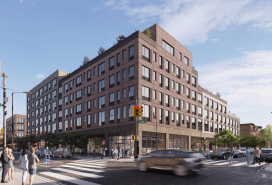The Board Room: 6 reasons you need a lawyer to review that construction contract

When it’s time to replace the boiler, perform Local Law 11 work, or renovate the lobby and hallways, some co-op and condo boards sign a standard agreement created by the American Institute of Architects that has been prepared by the contractor.
Unfortunately, the AIA stamp of impartial-sounding authority can lull board members into a false sense of security. Unaware that the agreements were written to protect contractors and architects, all too many boards—especially in smaller buildings--sign the AIA agreements without having an attorney review the contract.
Later, embroiled in disputes over defective work, delays, or unanticipated costs, these same boards come to recognize that an ounce of prevention may have been worth thousands of dollars in uncovered losses and legal fees.
Not fun—and definitely not good for your building’s bottom line.
Here are six reasons why the best time to talk to an attorney (and ask for a review of your construction contract) is before your project ever begins:
- You want to finish on time: Liquidated damages clauses are usually absent from AIA contracts; these give contractors a financial incentive to meet deadlines.
- Who is doing the work matters: A contractor shouldn’t be able to assign the contract, and the building should have the right to know which subcontractors will be hired.
- You don’t want any surprises as to the costs to complete the job: The agreement should ensure that the contractor will provide all labor and materials necessary to accomplish the work for a lump sum price.
- There is a pretty good chance that the job won’t come out exactly as you expect: The contract should contain clear warranties as to material and labor, both from the manufacturer and the contractor. The length of the warranty will depend on the type of work being performed. The agreement should also specify the extent of the warranty. For example, if a contractor needs to perform warranty work to the façade, the agreement should specify that the contractor is responsible for all ancillary costs, including the costs to re-erect a sidewalk bridge if necessary to perform such warranty work.
- Accidents are bound to happen: The contract should provide that the contractor shall indemnify and hold harmless the co-op/condo, and its managing agent, board members, officers, directors, employees and agents against any claims asserted arising from the performance of the work. To secure that obligation, the contract should require the contractor to be fully insured—with workers comp, liability insurance, property insurance, auto, and completed operations insurance—by solvent insurance companies. The policies should name the co-op/condo and related persons and entities as additional insureds.
- You want to pay for a job that’s not only done, but done right: The contract should include a provision requiring the owner’s architect to approve of work performed as a condition to contractor’s right to payment, and should further provide for a retainage (usually 10%) to ensure that contractor has incentive to complete all work including any “punch list” items. In addition, the contract should provide that the owner can stop making payments if work has not been properly performed or the contractor is otherwise in breach of the agreement.
Scott S. Greenspun, Esq., is a partner at the law firm of Braverman & Associates, specializing in the representation of New York City co-op and condominium boards.


























